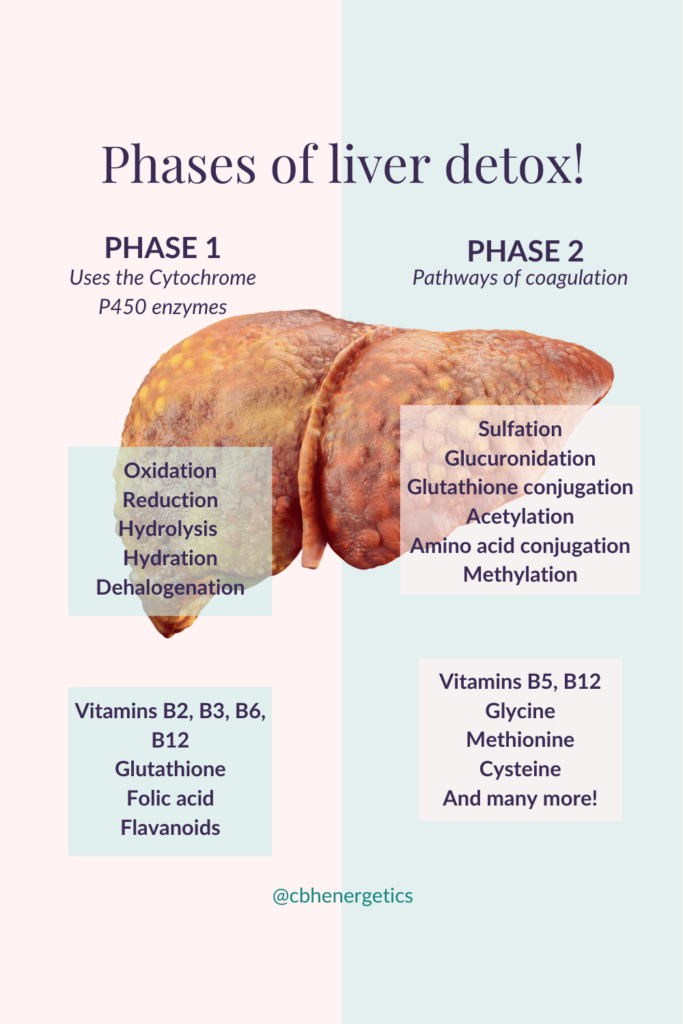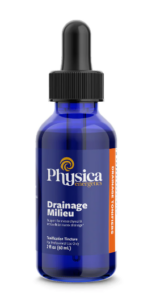
Support Your Drainage Funnel And Natural Drainage Pathways!
If you’re considering starting a detox, we hope that supporting your natural drainage pathways will come first! Your natural drainage pathways work together to help with detoxification. If they are not open, then starting a detox may make you feel worse, not better.
Natural drainage pathways are responsible for moving things out of your body. Keeping these pathways open is vital for your body to eliminate harmful substances and stay balanced.
Stagnation and Body Stress
Blocked drainage pathways lead to something called stagnation. In practices like acupuncture, stagnation refers to blocked energy. We see blocked energy in body systems on bioresonance testing. Within our testing process, stagnation shows up as organ system stress.
In acupuncture, treatments unblock energy to move freely through the body’s meridians. With bioresonance, we work with herbs and homeopathic remedies to improve energy flow.
Grab our free guide to improving natural drainage pathways.
The Body’s Natural Drainage Systems
Your body already has some built-in drainage and detox systems. If you have stagnation, they may need a little assistance.
These systems include:
- The Lymphatic System: this includes your thymus and spleen.
- The Respiratory System
- The Digestive System
- The Integumentary System
- The Liver/gallbladder
- The Urogenital System
Let’s dive deeper into each of these systems.
The Lymph System
The Lymphatic System has a few different roles, one of which belongs to the body’s natural drainage pathways. It is a network of vessels and lymph nodes that transport lymph fluid throughout your body. This fluid can contain waste products, toxins, and other undesirable substances that the body eliminates. Functioning as a diligent filter, the lymphatic system removes these waste materials, ensuring their safe disposal.
Your lymph system is also part of your Immune System, protecting you as your lymph fluid also houses lymphocytes. These white blood cells are part of your host defense! Lymph nodes also hold lymphocytes (immune cells) and filter waste, bacteria, and damaged cells from lymph fluid.
If the lymphatic system becomes overwhelmed or compromised, it can lead to a buildup of waste and toxins, potentially leading to various health issues.
Unlike the Cardiovascular System, the lymphatic system lacks a built-in pump. Instead, YOU are the pump.
This means that movement and activity help you with natural drainage pathways and proper detoxification. Jumping on a rebounder, using a vibration plate, or getting a massage can all stimulate lymph flow effectively. Walking, biking, running, and even sauna stimulate circulation and lymph flow.

The Respiratory System
Besides its primary function in gas exchange, the Respiratory System also eliminates toxins. As you breathe, this system naturally filters out impurities and toxins. These harmful particles are trapped in the mucous membranes lining your respiratory tract. Next, tiny hair-like structures called cilia move the trapped particles toward your throat, where they are either swallowed or expelled through coughing or sneezing.
Regular deep breathing exercises can help enhance the natural drainage process of your respiratory system. Additionally, maintaining good indoor air quality and minimizing exposure to airborne toxins like mold and chemical fumes can reduce the burden on your respiratory system and promote healthy natural drainage.
Hint: if you want good mucous flow in your respiratory tract, hydrate well and consider the benefits of NAC supplements in your health routine!

The Digestive System
Your Digestive System is a foundational component of your natural drainage pathways! If this isn’t flowing well, the whole system gets backed up. We’re referring to proper bowel movements! This is one of the first things you should attend to if you are thinking about attempting any detox or parasite cleanse.
Many of our affiliates talk about drainage as a funnel. Think of the base of the funnel as your digestion. The quality and quantity of your bowel movements matter. Your digestive system’s responsibilities include breaking down food, absorbing nutrients, and eliminating waste products.
If you are not eliminating properly—at least once per day and producing a stool resembling a sausage rather than rabbit pellets—this drainage pathway requires attention. Conversely, if you have diarrhea or runny stools containing undigested food, this also indicates a need for support.
First, look at how much water you incorporate into your daily routine. Although the amount can vary with weather and activity, aiming for 15 1/2 cups for men and 11 1/2 cups for women is a general guideline.
The Liver and Gallbladder
Meet your body’s ultimate detox duo and integral part of your natural drainage pathways: The liver and gallbladder. Your liver is often hailed as the master detoxification organ, and it filters toxins and waste products from your blood. It then converts them into less harmful compounds, which are eliminated from your body. But that’s not all—it also metabolizes alcohol, medications, and recreational drugs, and even removes bacteria from the bloodstream. Plus, it regulates blood levels of amino acids, essential for various body functions.
The liver does this through its two phases of detoxification. This process is very nutrient-dependent, needing many B vitamins, glutathione, and amino acids like cysteine and methionine.
Another role of the liver is to produce bile. The gallbladder, a trusty companion to the liver, stores this essential fluid. Bile salts are within this fluid and start to break down the fat we eat. This helps our digestive enzymes (lipase is the digestive enzyme that breaks down fat) break the molecules down further for optimal absorption. Lower bile production impacts nutrition and detox. Lack of a gallbladder means a lack of storage for bile.
Bile assists in breaking down lipid-soluble toxins like pesticides or mycotoxins, which are the toxic byproducts of mold. Without bile, the drainage and detoxification process would be incomplete, highlighting the vital role these dynamic organs play in your body’s natural drainage pathways. When prompted by cholecystokinin, the bile is released from the gall bladder. We bioenergetically assess cholecystokinin and other hormones, along with digestive enzymes.

The Urogenital System
The Urogenital System eliminates waste products and excess fluid from your body. It consists of your kidneys, bladder, ureters, and urethra. The kidneys filter waste products and excess water from your blood, producing urine that is stored in the bladder. When your bladder is full, the urine is eliminated through the urethra.
Proper hydration is needed as another foundation of drainage. Otherwise, you may see stress in your Urogenital System dial and see the bladder or kidney reveal as part of that stress. For optimal functioning of your urinary system and natural drainage, drinking adequate water helps flush out toxins and waste products, preventing the buildup of harmful substances in your body.
This will also aid in Cellular Metabolism.
The Integumentary System
In addition to the Lymph System, Respiratory System, Digestive System, and Urogenital System, there are other natural drainage pathways in your body. These include the sweat glands, which sit in your skin and are a part of the Integumentary System. They help eliminate toxins through perspiration.
Sweating is a great way to help move toxins out of your body.
Many toxins can cause stress in your Integumentary System, either directly or indirectly. Digestive stress and Liver stress can affect your skin. Think of your skin as a protective but absorbent barrier. It can let things in, like toxic body care products, and it lets things out, like sweat and toxins. It keeps bacteria out and hydration and water in.
Common signs of impaired drainage pathways
The natural drainage pathways are interconnected and depend on each other for proper functioning. Any disruption in one pathway can affect the others, leading to impaired natural drainage. It’s important to be aware of the common signs that may indicate impaired natural drainage in your body. These signs can include:
- Persistent fatigue or low energy levels
- Swelling or water retention
- Skin issues such as acne, rashes, or dryness
- Frequent headaches or migraines
- Digestive issues like bloating, constipation, or diarrhea
- A weakened immune system leading to frequent infections or illnesses
- Feeling puffy
- Joint pain
- Difficulty sweating
- Healing challenges
If you experience any of these symptoms, it may be a sign that your natural drainage pathways need support and attention.
Tips for Promoting Natural Drainage
You can take several steps to promote and support the healthy functioning of your natural drainage pathways. Here are some tips to consider:
- Stay hydrated: drink plenty of water throughout the day to help flush out toxins and waste products from your body. Consider using Multi-Trace Minerals to help your cells take in the water you diligently put into your body.
- Try homeopathy! Several drainage formulas are specific to organ systems; some support general body drainage. One of the most common remedies we see on reports is Drainage Milieu.
- Eat fiber: add fruits, vegetables, and fiber to your diet to support your digestive system and promote healthy natural drainage. This also encourages a healthy microbiome, which will naturally resist invading microbes.
- Move more: any exercise helps stimulate circulation and lymphatic flow, supporting the natural drainage process.
- Dry skin brushing: this amplifies your circulation by stimulating your skin and your lymphatic system.
- Practice deep breathing exercises: They can enhance the natural drainage of your respiratory system and promote relaxation.
- Avoid exposure to pollutants: minimize exposure to environmental toxins and pollutants that can burden your natural drainage pathways. Bioenergetic testing can help identify the toxins that may block your energetic connections between organ systems.
- Get enough sleep: a good night’s sleep allows your body to repair and rejuvenate, supporting the natural drainage process. This process supports part of your lymphatic system, which is your Glymphatic System.
Take care of your body’s natural drainage pathways, and your body will be much more effective in detoxification. Start implementing the tips mentioned in this article, grab our guide, and listen to your body’s needs. With a little effort and attention, you can support the efficient functioning of your natural drainage pathways, lift your fatigue, work towards balanced hormones, and have more energy!


